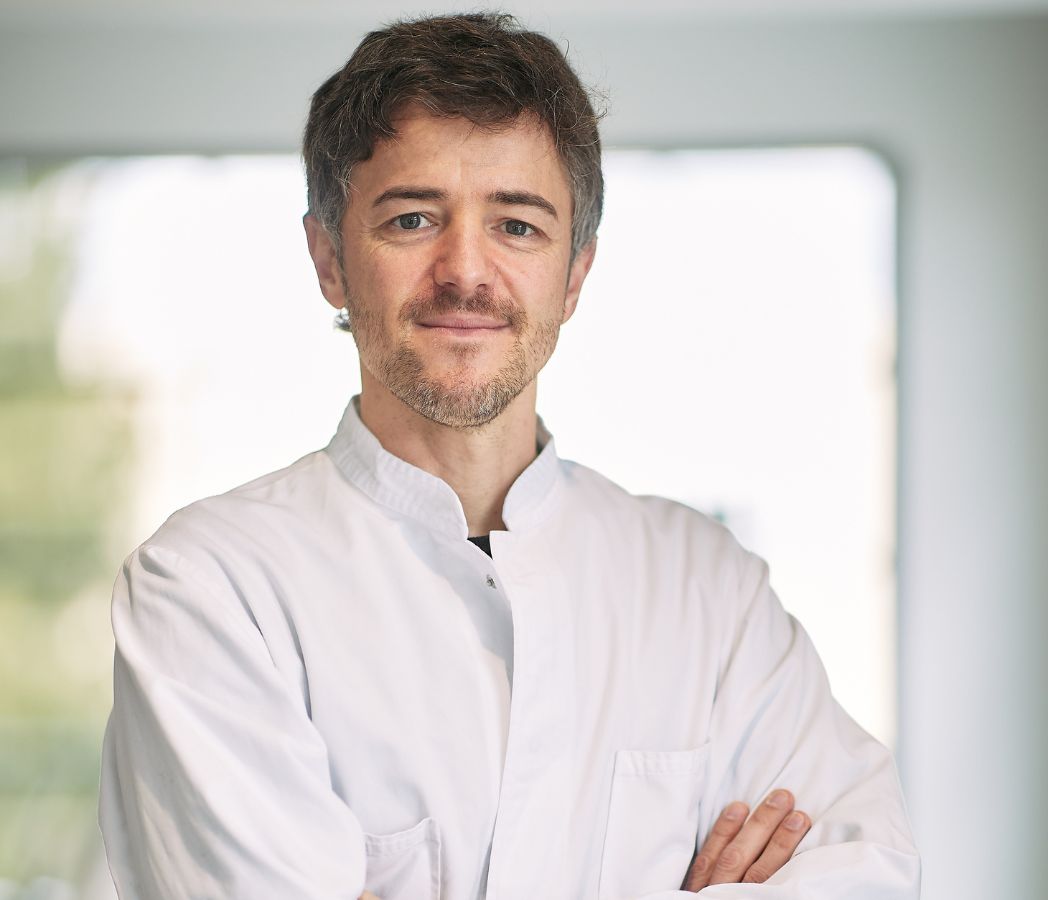Get to know: Jun. Prof. Dr. Josef Leibold

The W1 professorship for Functional Immunogenomics was already established 2020 as part of our Cluster of Excellence iFIT and is located at the interface between molecular biology and immunology research.
Leibold studied human medicine at the Eberhard Karls University of Tübingen from 2005 to 2011 and obtained his doctorate there in 2012 in the Department of Pediatric Oncology in the field of immuno-oncological research. He then worked as a junior doctor in the Department of Gastroenterology at Tübingen University Hospital until 2015. From 2013 to 2015, Leibold also devoted himself to research in the Department of Translational Gastrointestinal Oncology. To deepen his scientific work, he moved to the renowned Memorial Sloan Kettering Cancer Center in New York as a postdoctoral fellow in 2015, before coming back to Germany in 2020.
Tumors are a complex network comprised of tumor cells, various types of immune cells, cancer associated fibroblasts, blood- and lymphatic vessels, pericytes and others. It has recently been shown that the genetic makeup of the tumor can directly influence and shape the composition of this network. Leibold and his lab are studying the impact of specific genetic alterations on the immune microenvironment with the goal to improve cancer therapy and to therapeutically (re-) establish immune surveillance mechanisms. The lab is using innovative and flexible preclinical models involving CRISPR/Cas9 and transposon based somatic tissue engineering approaches to induce genetically defined tumors in mice. These models serve as a platform to dissect how tumor suppressors and oncogenes influence the microenvironment and orchestrate escape from immune surveillance during tumor progression. Based on this information the Leibold lab applies rational therapies such as combinations of targeted or immunomodulatory therapies and chimeric antigen receptor (CAR) T cells tailored to the underlying genetic alterations and disease settings. The goal is to translate these approaches into novel therapeutic avenues for patients with hard-to-treat malignancies and an otherwise dismal prognosis.
